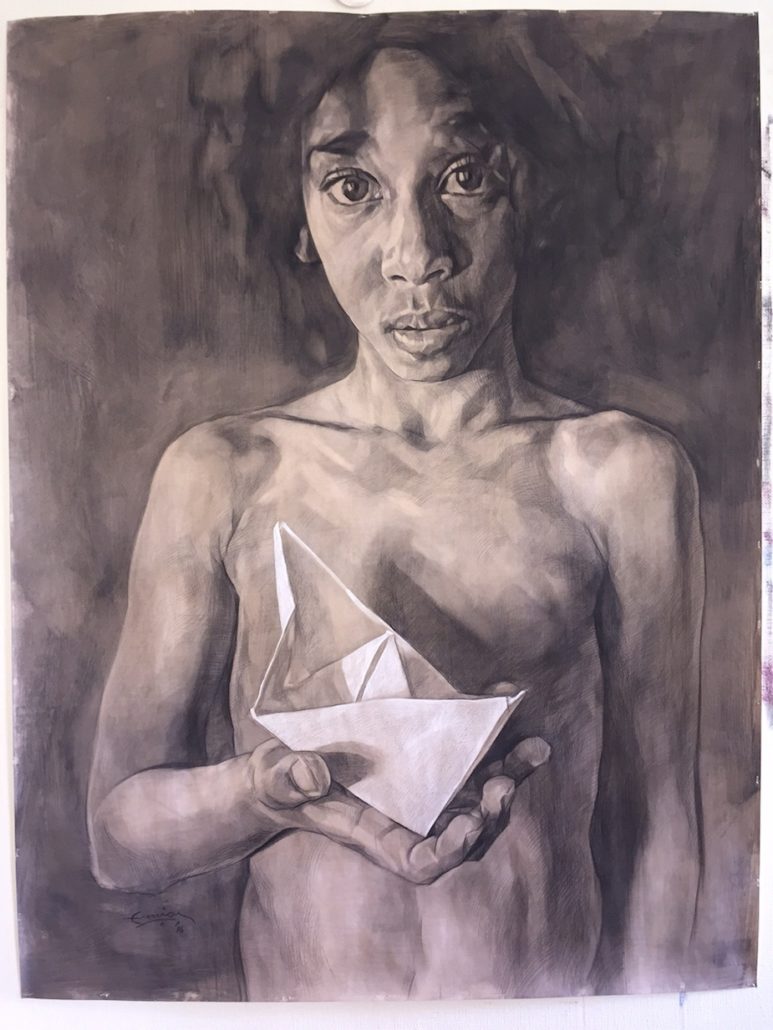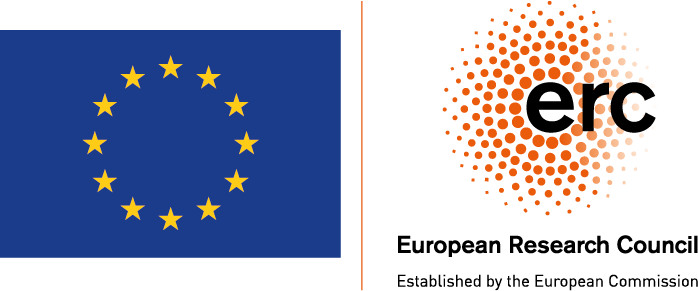Ekube’s artwork is pregnant with questions: whose life matters? When? Where? How?

A seeing person reads two main things on the street, suggests Ermias Ekube: road signs and human faces. The former, he describes as some of the simplest symbols that an urban-dweller can read—the latter, among the most expressive and expansive. Ekube plays with the juxtaposition of these elements in some of his latest bodies of work, which he says present an exercise in questioning. “I always try to explore the three-fold psychology of the human being—the individual, the social, and the universal. I could not handle the one without the other, to capture my vision of the human condition in our time.”
Ekube intends this work to pare life’s complexities down into simpler symbols and gestures, while opening himself and the viewer up to what he considers the most intriguing questions in the world today: Whose life matters? Where does life matter more? When does life matter more? These questions are more concrete than the ones he normally explores, but are ones he believes every person can and should ponder. They are seeded in his own experiences, of “living in different places and societies… witnessing lives wasted in prisons, in wars and migrations caused by issues of race and social class… and rooted in discrimination.”
There is discrimination in what and how we see, too, Ekube believes; images often carry such discrimination, fermenting it into deeper vengeance and hardening the value hierarchy of lives. In his drawing titled watching action film (boats on Mediterranean), he tries to convey that as we get accustomed to shocking images—of police brutality, of children washed ashore or sitting in shell shock—many see an action movie before seeing the people and the lives affected. He speaks of reintroducing the fragility of life through “expressions of tension and balance… and delicate objects [like eggs and paper boats] that are very much related to the ever-growing uncertainty, the nonstop forced dislocations, the continuous loss of thousands of lives.”
Ekube’s work is pregnant with questions: whose life matters? When? Where? How? “I feel most of our contemporary socio-political systems are leading us far away from humanity,” he says, explaining why he feels compelled to explore these questions through artwork. “By its nature art is a highly spiritual activity. Its role may be to remind, to raise consciousness in humanity, in life. To propose a new way of seeing for a possible harmony [rather] than friction between people. To present the problems for possible solutions.”
Text by Melissa Smyth.
- Original source: Warscapes
- Content Creator: Ermias Ekube


